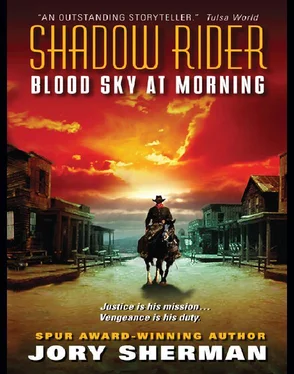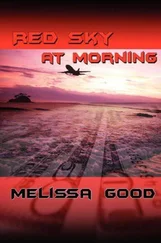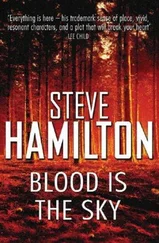He worried about Colleen because now he knew that Ferguson had eyes and ears inside Fort Bowie. That was evident in their threats and their knowledge of troop movements. Ferguson, or Trask, or both, had an informant on the post, either an army man or a civilian. It was disconcerting, but he knew there were soldiers who sympathized with the civilian whites, soldiers who wanted to drive the Apaches from Arizona or tack all their hides to a barn door and set the barn afire.
The motives of such soldiers and the motives of civilians were easy for him to understand. What puzzled him now was the motive of Ben Trask. He had discerned that Trask was in Ferguson’s employ, but he also deduced that Trask was not the following kind. He was like a coiled spring, inert for the moment but on the verge of exploding into something entirely different.
What did Trask want?
Ted had a hunch that he would know the answer to that question very soon. Trask was so full of deceit, he reeked with it, like some fakir’s woven basket that, when opened, would reveal a writhing nest of snakes within. Trask had something else on his mind besides wiping out Apaches. Ferguson might be under the illusion that Trask was in his employ, but Trask was using Ferguson to achieve his own ends. Ted did not yet know what those ends were, but he’d studied the man enough in the few hours he had been observing him to know that Trask had no ideals, no conscience, no common purpose he shared with Ferguson. He was like a cur, pretending to be friendly and loyal, who at the right moment would snarl and snap and tear a person to pieces with his deadly teeth.
Trask was the man to watch. Ferguson was weak and indecisive. Trask was strong and purposeful, although he concealed from others what he really wanted. He was playing along with Ferguson, but there was no loyalty there, and the pay he got from Ferguson was not compensation enough. And Ted knew that Trask wanted something from him that went beyond the location of Apache camps and strongholds.
Still fresh in his mind was his meeting with the wily and wise Chiricahua leader, Cochise. Tom Jeffords had arranged the meeting, and Ted had to travel without an army escort. It had been just him and Tom, and the ride took nearly two days through rugged country. Tom had apologized when he told him, at the last part of the trip, that he would have to go the rest of the way blindfolded. That was Cochise’s wish and there was no negotiating the terms.
Wearing the blindfold, he had ridden with Jeffords up through a steep canyon. Tom told him there were Apaches in the hills watching their progress, that they all had rifles and were within easy range.
“I can’t tell you much more than that, Ted, sorry. But you have a right to know what kind of country we’re in. Even if you rode up here without a blindfold, you’d never find your way back.”
“I guess I have to trust you, Tom. And Cochise, too.”
“Cochise is a man of his word. You will come to no harm while you’re with me.”
Ted was thoroughly confused by the time they halted in Cochise’s camp. When Tom took off his blindfold, the glare of the sun blinded him for several seconds. Then he knew he was looking into the eyes of Cochise, looking into centuries of warfare, blood and pain, and he saw mystic shadows in Cochise’s eyes, a knowing that was almost beyond human comprehension.
He was a small, wiry man, with a rugged moon face lined with deep weathered fissures. He looked, Ted thought, like a wounded eagle that was still full of fight. He wore a loose-fitting muslin shirt and a colored bolt of cloth wrapped around his head, his graying hair spiking from it like weathered splinters of wood. He wore a pistol and knife. A rifle and bandoleros sat nearby, within easy reach. Ponies stood at every lean-to, hip-shot, switching their tails at flies, their eyelids drooping like leather cowls on hunting hawks.
Apache men sat under lean-to structures made of sticks and stones that stood against canyon walls. They were little more than temporary shelters, and blended into the terrain, forming no discernible pattern. There were no women or children that Ted could see, and he knew he was in a war camp. Armed Apaches stood on rocky lookouts high above them, or sat, half hidden, squatted in clumps of cactus and stones, barely visible, their rifles and bandoleros glinting in the sun. The fire rings were under latticed roofs that broke up the smoke when it rose so that no sign of their presence ever reached the sky above the hills. It smelled of cooked meat and the dung of horses and men. It smelled of sand and rock and cactus blooms.
“You sit,” Cochise said in English. “We smoke.”
Ted smoked with the Apache chieftain, while Apache braves sat around them in a half circle, their faces stoical as stone, their eyes glittering like polished obsidian beads. He and Cochise talked, and Cochise asked and answered questions, as he did, too.
“Did you kill Apaches when you rode with the white eyes, Captain?” Cochise asked.
“Yes.”
“Did you kill women?”
“No.”
“My children?”
“No,” Ted answered.
Then he asked Cochise: “Have you killed white men?”
“Yes,” Cochise said.
“The army does not want to keep fighting the Chiricahua. But it does not want the Chiricahua to kill any more white people. The army thinks the two tribes can live together, in peace.”
“The white man wants all the land,” Cochise said. “Land that the Great Spirit gave to the Chiricahua.”
“No, we do not want all your land.”
“It is not our land. It belongs to the Great Spirit. He lets us hunt it and live on it and wants us to defend it. The white man drives wooden stakes in the ground and writes words on paper that tell us the land belongs to him.”
Ted looked at Jeffords for help.
“That is the white man’s way,” Jeffords said. “The army wants to protect the Chiricahua and let Cochise have his land. He will keep the white man away from Chiricahua land. That is the white chief’s promise to the Chiricahua.”
“Is this true?” Cochise asked O’Hara.
“Yes,” Ted said.
Before he left the camp, Ted saw a strange sight and it startled him. A white man, dressed in black and riding a black horse, appeared from behind a low hill with two Chiricahua braves. He waved to Cochise, turned his horse and rode off into the hills and canyons that formed a maze around the Apache camp.
Cochise waved back to the man.
“Who was that?” Ted asked without thinking. Jeffords shot him a look of warning.
Cochise caught the look and waved a hand in the air as if to dismiss Jeffords’s attempt to silence Ted.
“He is called the Shadow Rider,” Cochise said. “He comes to us from the north and he brings the words of the white chief Crook with him. He speaks our tongue.”
“But he’s a white man,” Ted blurted out, still puzzled by the man he had seen.
Cochise shrugged and some shadow of a smile flickered from his leathery face.
“Who is to know what blood runs in the Shadow Rider’s veins?” Cochise said. “My people trust him. I trust him.”
“Will you also trust this man?” Jeffords asked, nodding toward Ted.
“I think this man speaks with a straight tongue. We will talk about him when you have gone. We will seek wisdom from our elders and from the Great Spirit.”
“That is good enough,” Jeffords said.
Ted’s memory of that strange meeting was still vivid in his mind. He had a great deal of respect for Cochise, and after he reported his visit to Captain Bernard, he felt that peace with the Apaches was possible. He just hoped his superiors felt the same.
He had not told Bernard about the Shadow Rider, but he had asked Jeffords if he knew the man.
Читать дальше












